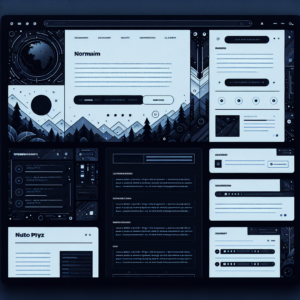A critical vulnerability, CVE-2024-9847, has been identified in FlatPress CMS, a lightweight blogging platform. The flaw, classified as a Cross-Site Request Forgery (CSRF) attack, allows malicious actors to manipulate plugin settings on behalf of authenticated users. With a CVSS score of 8.0 (HIGH), this vulnerability poses a significant risk to organizations using FlatPress CMS in their infrastructure.
TL;DR
- CVE-2024-9847: A high-severity CSRF vulnerability in FlatPress CMS allows attackers to enable or disable plugins on behalf of authenticated users.
- Severity: 8.0 (HIGH) on the CVSS scale.
- Impact: Attackers can exploit this flaw by crafting malicious links or scripts, leading to unauthorized actions.
- Fix: The vulnerability is patched in FlatPress CMS version 1.4.dev.
- Relevance for Red Teams: This vulnerability can be leveraged in penetration testing to demonstrate the risks of unpatched systems and poor CSRF protections.
Understanding the Vulnerability
The vulnerability resides in FlatPress CMS’s latest version, where an attacker can craft a malicious link or script. When an authenticated user clicks on this link, the attacker can send a forged request to the FlatPress CMS server, enabling or disabling plugins without the user’s consent. Since the request is authenticated, the server processes it as legitimate, granting the attacker unauthorized control over the CMS.
This type of attack is particularly dangerous because it requires minimal interaction from the victim—simply clicking a link or visiting a compromised website can trigger the exploit. The vulnerability has been addressed in FlatPress CMS version 1.4.dev, and users are strongly advised to update immediately.
Why This Matters
CSRF vulnerabilities like CVE-2024-9847 are a stark reminder of the importance of robust security practices in web applications. For organizations using FlatPress CMS, this flaw could lead to:
- Disruption of services: Attackers could disable critical plugins, rendering the CMS non-functional.
- Data breaches: Malicious plugins could be enabled to exfiltrate sensitive data.
- Reputation damage: Exploitation of such vulnerabilities can erode user trust and harm an organization’s reputation.
Red-Team Relevance
For red teams, CVE-2024-9847 presents a valuable opportunity to demonstrate the risks of unpatched systems and inadequate CSRF protections. Here’s how red teams can leverage this vulnerability in engagements:
- Proof of Concept (PoC): Develop a malicious link or script to simulate an attack, showcasing how easily plugin settings can be manipulated.
- Awareness Training: Use the exploit to educate developers and administrators about the importance of implementing CSRF tokens and other protective measures.
- Penetration Testing: Include this vulnerability in penetration tests to assess the organization’s ability to detect and mitigate CSRF attacks.
By exploiting this vulnerability, red teams can highlight the critical need for timely updates and robust security configurations.
C-Suite Summary
For senior executives, the key takeaway is that CVE-2024-9847 represents a significant security risk for any organization using FlatPress CMS. The vulnerability allows attackers to manipulate plugin settings, potentially leading to service disruptions, data breaches, and reputational harm. Immediate action is required:
- Update to FlatPress CMS version 1.4.dev to mitigate the risk.
- Conduct a security audit to ensure no other vulnerabilities exist.
- Invest in employee training to recognize and avoid CSRF attacks.
Conclusion
CVE-2024-9847 underscores the importance of proactive security measures in web applications. For FlatPress CMS users, updating to the latest version is critical to protect against this high-severity vulnerability. For red teams, this flaw offers a valuable tool for demonstrating the real-world impact of CSRF attacks and the importance of robust defenses.
References
- CVE-2024-9847 – NVD. Retrieved March 22, 2025.
- CVE-2024-9847 – Exploits & Severity – Feedly. Retrieved March 22, 2025.
- flatpressblog flatpress 1.3 cross-site request forgery – VulDB. Retrieved March 22, 2025.
- The world’s first bug bounty platform for AI/ML. Retrieved March 22, 2025.
- CVE – X. Retrieved March 22, 2025.
- Craft – CVE – Search Results. Retrieved March 22, 2025.
- CVE-2024-9847 vulnerabilities and exploits – Vulmon. Retrieved March 22, 2025.
- Search Results – CVE. Retrieved March 22, 2025.
- CVE – Wind River Support Network. Retrieved March 22, 2025.
- Newest CVEs – Tenable. Retrieved March 22, 2025.
Metadata
Main Keywords: CVE-2024-9847, FlatPress CMS, CSRF vulnerability, red team, penetration testing, cybersecurity, plugin manipulation, CVSS 8.0.






